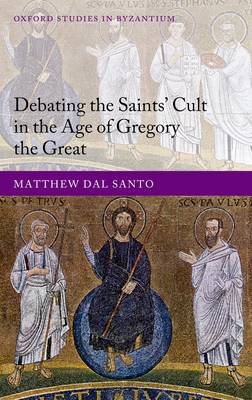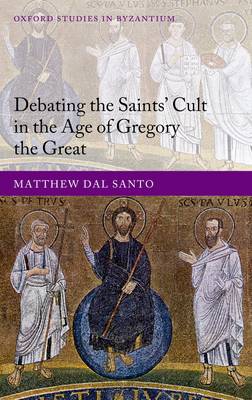
- Afhalen na 1 uur in een winkel met voorraad
- Gratis thuislevering in België vanaf € 30
- Ruim aanbod met 7 miljoen producten
- Afhalen na 1 uur in een winkel met voorraad
- Gratis thuislevering in België vanaf € 30
- Ruim aanbod met 7 miljoen producten
Zoeken
Omschrijving
In Debating the Saints' Cults in the Age of Gregory the Great, Dal Santo argues that the Dialogues, Pope Gregory the Great's most controversial work, should be considered from the perspective of a wide-ranging debate about the saints which took place in early Byzantine society. Like other contemporary works in Greek and Syriac, Gregory's text debated the nature and plausibility of the saints' miracles and the propriety of the saints' cult. Rather than viewing the early Byzantine world as overwhelmingly pious or credulous, the book argues that many contemporaries retained the ability to question and challenge the claims of hagiographers and other promoters of the saints' miracles. From Italy to the heart of the Persian Empire at Ctesiphon, a healthy, sceptical, rationalism remained alive and well. The book's conclusion argues that doubt towards the saints reflected a current of political dissent in the late East Roman or Byzantine Empire, where patronage of Christian saints'
shrines was used to sanction imperial autocracy. These far-reaching debates also re-contextualize the emergence of Islam in the Near East.
shrines was used to sanction imperial autocracy. These far-reaching debates also re-contextualize the emergence of Islam in the Near East.
Specificaties
Betrokkenen
- Auteur(s):
- Uitgeverij:
Inhoud
- Aantal bladzijden:
- 395
- Taal:
- Engels
- Reeks:
Eigenschappen
- Productcode (EAN):
- 9780199646791
- Verschijningsdatum:
- 7/09/2012
- Uitvoering:
- Hardcover
- Formaat:
- Genaaid
- Afmetingen:
- 218 mm x 145 mm
- Gewicht:
- 643 g

Alleen bij Standaard Boekhandel
+ 313 punten op je klantenkaart van Standaard Boekhandel
Beoordelingen
We publiceren alleen reviews die voldoen aan de voorwaarden voor reviews. Bekijk onze voorwaarden voor reviews.











